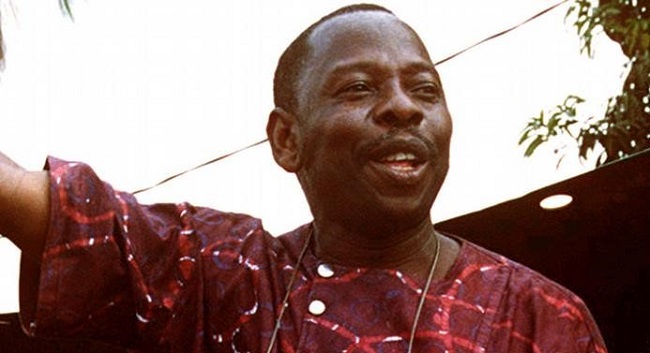The Environmental Rights Action/Friends of the Earth Nigeria (ERA/FoEN) marks the 25th anniversary of the killing of Ken Saro-Wiwa and his Ogoni eight activist fighting for environmental justice, the clean-up, compensation and remediation of Ogoniland from Shell Oil Company’s operations in the area.

According to the organisation, the anniversary also provides the opportunity to underline the fact that the death of the Ogoni martyrs shall never be in vain. The legacy of Ken Saro-Wiwa, it adds, lives on in environmental justice struggles in Ogoni land and across the entire Niger Delta and at national and international levels.
For over 60 years, the Nigerian Government exploited oil and gas resources in the Niger Delta region. During this period, extensive pollution of the air, water, sediment and soil in local communities in the region exposed humans and other life forms to severe risks resulting in frequent deaths.
In a statement released on Tuesday, November 10, 2020 in Benin City, Dr Godwin Uyi Ojo, Executive Director, ERA/FoEN, stated that in marking a quarter-century since the death of the Ogoni Nine, the Niger Delta environment still groans under the severe weight of environmental despoliation and poverty remains widespread with little or no change on the welfare and livelihoods of the people.
He recalls that, in 2011, the United Nation Environment Programme (UNEP) documented the devastating long term impact of the oil industry in Nigeria’s Ogoniland, setting the urgent recommendations for a clean-up, and emergency relief measures that was sidelined.
“However, the systematic failure of oil companies and the Nigerian government to clean up has left hundreds of thousands of Ogoni people facing serious health risks, struggling to access safe drinking water and unable to earn a decent living.
“The commemoration provides the opportunity to highlight the ecological disaster and human rights violations that the entire Niger Delta is still facing even after 25 years have passed since Ken Saro-Wiewa was executed, along with 8 other Ogoni leaders for standing up to Shell’s operations in Nigeria.
“The legacy of Ken Saro-Wiwa confronts directly the Multinational Oil Companies enormous political and economic powers over the Nigerian State and in countries in the global south where they conduct business often without respect for national laws and regulations,” adds Dr Ojo.
He called for a United Nations legally binding treaty to hold multinational companies accountable for their human rights violations.
“This treaty will also ensure access to justice and remedy that is currently a major challenge in developing countries in their attempt to bring multinational companies to justice. Shell must account for its human rights violations in Ogoniland and the entire Niger Delta and ensure proper clean-up of the pollution in their areas of operations.”
He frowned at the “slow pace of clean-up” by the Hydrocarbon Remediation Project (HYPREP), describing it as “unacceptable”. He submits that it requires improved capacity and restructuring to properly clean up Ogoniland.
His words: “Nigeria should key into the unprecedented momentum for leaving the fossil fuel age behind us hence the need to embrace decentralised energy democracy model that allows people driven off-grid and mini-grid solar systems for energy access for all. A post-petroleum economy devoid of environmental degradation and destruction of lives and property is expedient.
“For the Ogonis, it is time for sober reflections. It is time for forgiveness, healing and unity among the Ogonis especially all the martyrs of the environmental justice struggle.
“Surely, the collective will of the people shall never be broken.”
